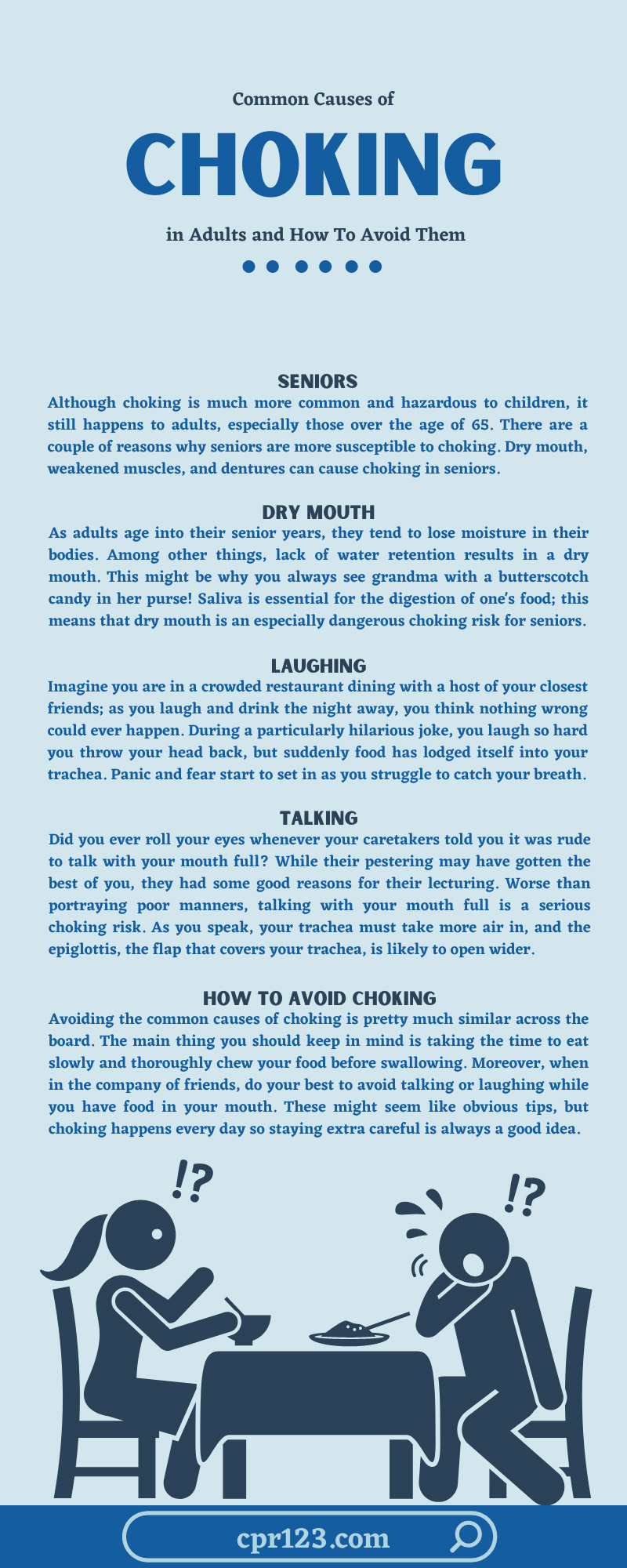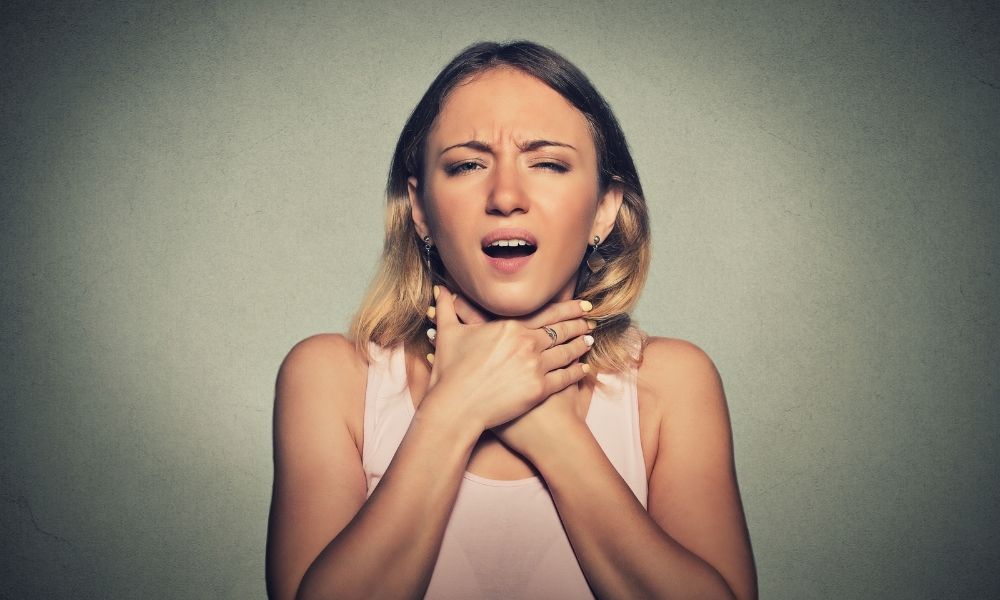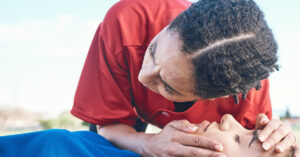You might believe that choking doesn’t happen often, and as such, there is no reason to worry or even think about it. Right? However, you might find yourself surprised to know that choking is one of the top five causes of unintentional death. You likely know what it feels like to have something caught in your throat—the forceful bodily response and panic are unforgettable. If you want to avoid yourself or someone near you from feeling that way, then keep reading to learn some of the common causes of choking in adults and how to avoid them.
Seniors
Although choking is much more common and hazardous to children, it still happens to adults, especially those over the age of 65. There are a couple of reasons why seniors are more susceptible to choking. Dry mouth, weakened muscles, and dentures can cause choking in seniors.
Dry Mouth
As adults age into their senior years, they tend to lose moisture in their bodies. Among other things, lack of water retention results in a dry mouth. This might be why you always see grandma with a butterscotch candy in her purse! Saliva is essential for the digestion of one’s food; this means that dry mouth is an especially dangerous choking risk for seniors. To avoid this choking hazard, stay away from dry and sticky foods, like a peanut butter sandwich. Although tasty, the components of this meal make it hard for seniors to swallow and digest safely.
Weakened Muscles
Your esophagus will adjust in size to push the bolus safely into your stomach. This muscular tube weakens with age, making it difficult to change in size and safely carry liquids and foods into your stomach. This is why it is much more common for older adults to be at a higher risk of choking. To mitigate the risks of age-related choking, opt for softer foods, like popsicles, that slide down the esophagus with ease.
Dentures
Dentures or the lack thereof can result in choking. Therefore, this information is essential to keep in mind if you or someone you know wears dentures. Dentures lack the sensitivity of natural teeth, meaning it can be challenging to feel whether you have correctly chewed your food before swallowing. Moreover, seniors often prefer to eat without their dentures for comfort reasons. However, without dentures for proper mastication, solid food pieces can easily lodge in the trachea.
Laughing
Imagine you are in a crowded restaurant dining with a host of your closest friends; as you laugh and drink the night away, you think nothing wrong could ever happen. During a particularly hilarious joke, you laugh so hard you throw your head back, but suddenly food has lodged itself into your trachea. Panic and fear start to set in as you struggle to catch your breath. What happens next?
Hopefully, someone near you knows how to perform CPR and the Heimlich. If you ever find yourself experiencing this situation, whether personally or from the outside looking in, learning Basic Life Support training can save your life or others. CPR123 is happy to provide you with high-quality BLS certification courses. Sign up today!
Talking
Did you ever roll your eyes whenever your caretakers told you it was rude to talk with your mouth full? While their pestering may have gotten the best of you, they had some good reasons for their lecturing. Worse than portraying poor manners, talking with your mouth full is a serious choking risk. As you speak, your trachea must take more air in, and the epiglottis, the flap that covers your trachea, is likely to open wider. Food caught in the crossfire can lodge itself into your trachea, resulting in a severe choking hazard.
Too Fast
Sixth on our list of the most common causes of choking in adults and how to avoid them is eating too fast. In this day and age, we want what we want when we want it, in the quickest way possible and not a moment later! With our food, that is no different since we no longer view mealtime as a moment to sit and reflect on our day—it is now a means to an end.
When we rush through our mealtime and eat too quickly, our risk of choke-related death increases dramatically. Eating too quickly keeps us from adequately chewing our food to completion, meaning we might swallow something too large that our esophagus and trachea can’t handle. There is no need to hasten our mealtime as our lives are much too precious; slow down, take your time, and chew your food.
Drinking Alcohol
This might be surprising, but another common cause of choking in adults is drinking alcohol; how does this work? Alcohol has a depressant effect on your body, meaning your muscle’s natural response does not react as normally and as quickly as it should. If you eat while intoxicated, you are a bit more likely to choke on food due to your relaxed gag reflex.
However, the risk of choking on food as a result of relaxed muscles from drinking is only really likely when drinking in excess. When you drink, make sure you are intaking the recommended daily amount for adults. The recommended amount of alcohol intake is two drinks for men and one drink for women, or less than that in a day.
How To Avoid Choking
Avoiding the common causes of choking is pretty much similar across the board. The main thing you should keep in mind is taking the time to eat slowly and thoroughly chew your food before swallowing. Moreover, when in the company of friends, do your best to avoid talking or laughing while you have food in your mouth. These might seem like obvious tips, but choking happens every day so staying extra careful is always a good idea.
The scariest aspect about choking is how it can strike at any moment; this is compounded by the fact that choking is always preventable. However, no matter what precautions we take, choking can happen, so it is crucial for us to prepare ourselves on all levels. As such, it would help to take either an in-person or online CPR certification course or any Heartsaver course. Preparing yourself for anything that can happen is the best way to prevent the preventable.








